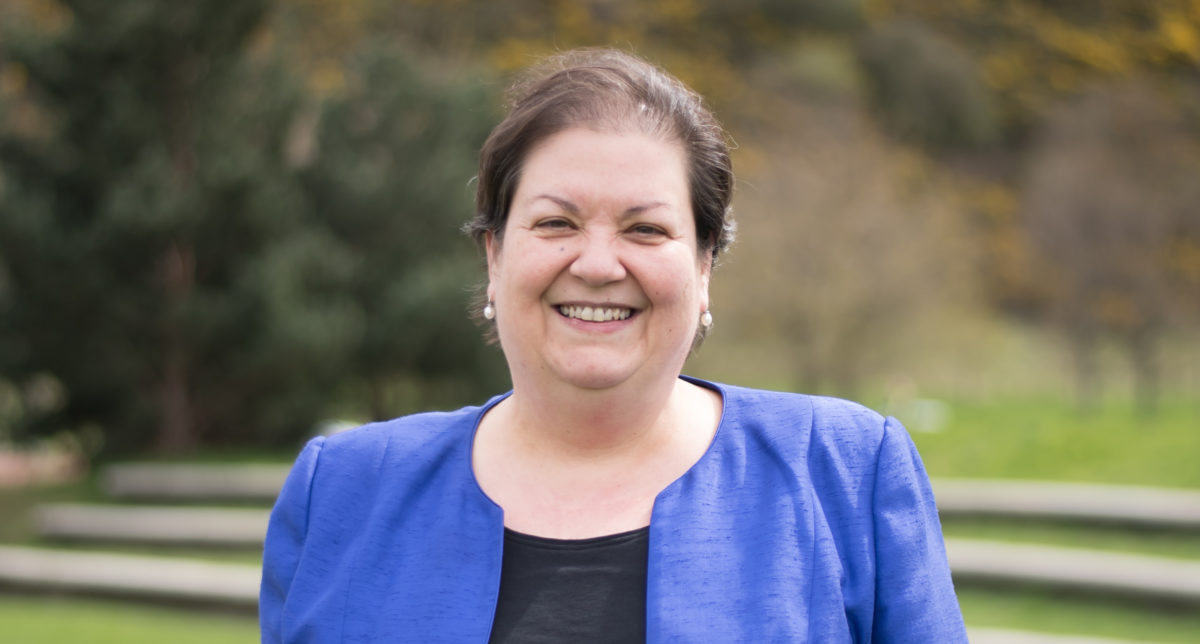I hold his lower leg so his daughter can gently wash underneath his knee. Then she does the same for me. We kneel on each side of her father’s body, which we brought home from the hospital where he died last night.
“You do his face,” I say, moving back to the bed base, where I wring out my cloth in warm water. My colleague arrives with a cooling plate. His daughter and I finish washing and drying him, then we dress him in his best suit and place him on a sheet over the plate. The plate means that his daughter can keep him at home until it’s time for the cremation.
We draw another sheet up to his chest. I light candles and place them at each corner of the bed as his daughter scatters rose petals around him. Tomorrow we will put him in a wicker casket. We will surround him with garlands and greenery and carry him to the hearse. His daughter will accompany him to the crematorium, where she will bear witness as her father’s body is placed in the fire.
I wanted to give others what my sister’s funeral had given me: a clean wound, ready for healing.

It’s seven years since my sister Allison died. She lived most of her life with various degenerative conditions due to brain cancer. My family gave her a beautiful send-off. Her adult nieces and nephews, whom she had babysat when she was little, brought her special mementos, prepared a slideshow, and decorated the casket.
I brought felt-tipped pens so we could write final messages on her eco-coffin. My daughter, then three years old, drew “potato people” on the side of the casket to keep Aunty Allison company on her final journey. Friends and family said prayers. My brother and our eldest sister gave me the eulogy.
‘When my sister died, I was not a consumer but a grieving puddle of emotions.’
After Allison’s funeral, I took a break from writing the manuscript, which would eventually become my new novel, The Eulogy. I needed some time away from our story. But instead of a holiday, I enrolled in a master’s of theology. Two years later, I was an ordained interfaith minister, a trained death walker, a celebrant, and an independent funeral director.
Interfaith ministers offer pastoral care outside religious institutions, creating spiritual services for the non-religious. My peers became chaplains in hospitals and prisons, social workers, and university counselors. But for me, it was always about death. I wanted to give others what my sister’s funeral had given me: a clean wound, ready for healing.
But not everything about my sister’s funeral was perfect. I had chafed under the transactional gaze of the funeral directors. The inflated price of the eco-coffin outraged me, along with the attempts to upsell my grieving mother on urns, nameplates, and casket decorations.
I later found out that the funeral company we had hired was not a local family firm as I had thought but was owned by the multinational company InvoCare, which controls more than a third of the funeral market in Australia.
State and federal governments have held several inquiries, attempting to make the funeral industry more transparent, recognizing that consumers are particularly vulnerable at these times.
But I want more than the competition in the funeral industry. I want there to be no “industry”. When my sister died, I was not a consumer but a grieving puddle of emotions. I wanted a human I could trust to walk with me.
My book is a fictional guide for writing a eulogy as the protagonist prepares for her sister’s funeral.
Australian author and funeral celebrant Jackie Bailey. She conducted her first funeral in 2017. Photograph: Hilary Wardhaugh
They all seem to assume you are telling the story of a prosperous businessman who has lived to a ripe old age. But what about people like my sister Allison, who had no career, no children, and no value in this calculus, even though she was the defining person who taught me how to love? In reality, I have never found a good guide to eulogy writing.
Ultimately, I wrote an entire book to say goodbye to my sister. But if you only have a time slot in a funeral service, here is my advice: it does not have to be perfect. It does not have to be long. And it is completely OK to cry, laugh or do both simultaneously.
In 2017 I conducted my first funeral. It was for a nonprofit funeral provider in my local area, a charity that believes someone’s death should not be an opportunity to take a company public.
I was nervous before the service began, but the anxiety just floated away once it started. It was so clear that this event was not about me. I was there to let people feel whatever might arise: sadness, relief, despair, and gladness. I was there to walk with them.











